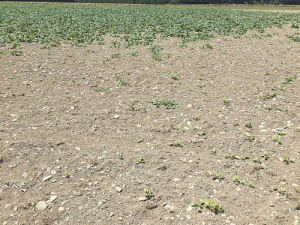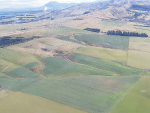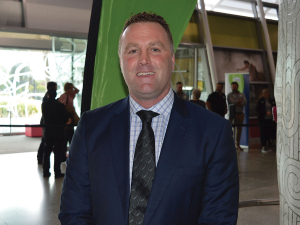IrrigationNZ says water storage is crucial in helping provide a reliable supply of water and for food production.
Its chief executive, Andrew Curtis, says Capetown (pop. 4 million), expecting soon to run out of water, is showing “poor future planning for the effects of climate change on water infrastructure”.
“By ratifying the Paris Agreement in 2016, NZ confirmed it will plan for and take action to adapt to the impacts of climate change. Developing more water storage to supply towns, rural communities and for food and energy production is important to protect the future wellbeing of Kiwis,” he says.
A new draft government report, ‘Adapting to Climate Change in NZ’, highlights that droughts are expected to occur more often and to be more severe, as are more intense rainfall and floods.
January 2018 was the hottest month ever recorded in NZ. And in 2017 shortages or surpluses of water caused huge problems: severe flooding in several regions in autumn and winter were followed by droughts in spring and summer.
“Many areas went for several weeks with minimal rainfall this summer. Where water storage was available it played an important role in ensuring locally grown produce was still available in supermarkets. But there’s still a lot of work needed to improve the resilience of our communities by improving our water storage,” says Curtis.
The 2012–2013 drought in the entire North Island and the West Coast show the impact climate change could have on NZ’s economy and communities. It was among the most severe in these areas in at least 40 years. The economic impact is reckoned at least $1.5 billion by Treasury.
According to NIWA, NZ now gets an average of 550 billion cubic metres of rain each year, of which 805 million cu. m flows out to sea, supporting river ecosystems along the way. About 25m cu.m is used for irrigation, urban and industrial use, with the remainder evaporating.
“Maintaining adequate river flows and river ecosystems is important for our future, so is looking at options to store water. Overseas water storage projects have combined flood protection works with water storage for urban and rural use.
“There are may options available. Projects to recharge underground water supplies through wetlands which provide a habitat for wildlife have also been completed as a cost-effective way of providing water when needed in Europe and America,” Curtis says.
In Timaru, Oamaru and Kerikeri irrigation schemes supply drinking water and farmers with stock water. Modern irrigation schemes can also be designed to provide environmental benefits by allowing river flows to be supplemented in times of low flows.
Curtis says IrrigationNZ is pleased that the government has indicated it will honour existing Crown Irrigation Investments Ltd commitments to support irrigation scheme modernisation and development.
“By 2050 our population is expected to reach 6 million. We’ll need to feed more people from the same land area, and supply water and power to new homes and businesses. Water is critical to our nation’s wellbeing. We must continue planning today to ensure we can meet New Zealand’s needs in the future.”


















